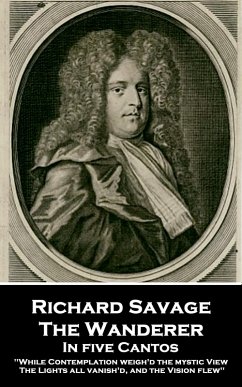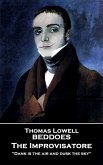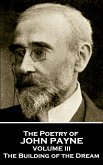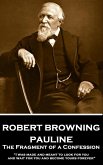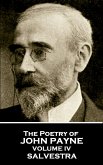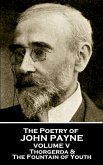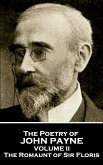Richard Savage by his own accounts certainly had an interesting life. He claimed to be the son conceived by his mother and her lover in the dying months of her marriage. She claimed the child had died in infancy.
Savage's first confirmed work was the poem 'The Convocation', or 'The Battle of Pamphlets' (1717). From a Spanish comedy he created 'Love in a Veil' (1718) and then, in 1723, he played, without success, the title role of his tragedy, 'Sir Thomas Overbury' (1724). From these he appears to have acquired a degree of notoriety and to have succeeded in pushing his version of his life to an expanding literary circle.
Savage's 'Miscellaneous Poems' were published by subscription in 1726. Savage openly exposed the story of his birth in the Preface, and made repeated oblique references to his mother and his status of abandoned genius in many of the poems.
In November 1727, obviously tortured by his past and whilst out drinking with acquaintances near Charing Cross in London, he was accused and then convicted of murder. A pardon followed but his notoriety continued.
This prompted him to publish in 1728 a confessional poem titled 'The Bastard', which made explicit mention of his mother, his trial and the pardon by the queen, and discarded his previous image of "poor poet" in favour of a celebration of his own genius.
In 1729 Savage published 'The Wanderer', his best known work, a long narrative poem which Savage himself considered to be his masterpiece.
The turn of Savage's fortunes was the result of a renewed extortion campaign against his mother, who granted him in 1729 a pension of £200 per annum. With this Savage could afford an opulent lifestyle.
However, it was squandered and old feuds resurfaced. He was left with virtually no income and eventually took refuge in Wales. There, abandoned by friends, he was arrested for debt and confined in the debtors' section of the Bristol Newgate Prison. He died there on 1st August 1743.
Savage's first confirmed work was the poem 'The Convocation', or 'The Battle of Pamphlets' (1717). From a Spanish comedy he created 'Love in a Veil' (1718) and then, in 1723, he played, without success, the title role of his tragedy, 'Sir Thomas Overbury' (1724). From these he appears to have acquired a degree of notoriety and to have succeeded in pushing his version of his life to an expanding literary circle.
Savage's 'Miscellaneous Poems' were published by subscription in 1726. Savage openly exposed the story of his birth in the Preface, and made repeated oblique references to his mother and his status of abandoned genius in many of the poems.
In November 1727, obviously tortured by his past and whilst out drinking with acquaintances near Charing Cross in London, he was accused and then convicted of murder. A pardon followed but his notoriety continued.
This prompted him to publish in 1728 a confessional poem titled 'The Bastard', which made explicit mention of his mother, his trial and the pardon by the queen, and discarded his previous image of "poor poet" in favour of a celebration of his own genius.
In 1729 Savage published 'The Wanderer', his best known work, a long narrative poem which Savage himself considered to be his masterpiece.
The turn of Savage's fortunes was the result of a renewed extortion campaign against his mother, who granted him in 1729 a pension of £200 per annum. With this Savage could afford an opulent lifestyle.
However, it was squandered and old feuds resurfaced. He was left with virtually no income and eventually took refuge in Wales. There, abandoned by friends, he was arrested for debt and confined in the debtors' section of the Bristol Newgate Prison. He died there on 1st August 1743.
Dieser Download kann aus rechtlichen Gründen nur mit Rechnungsadresse in D ausgeliefert werden.

